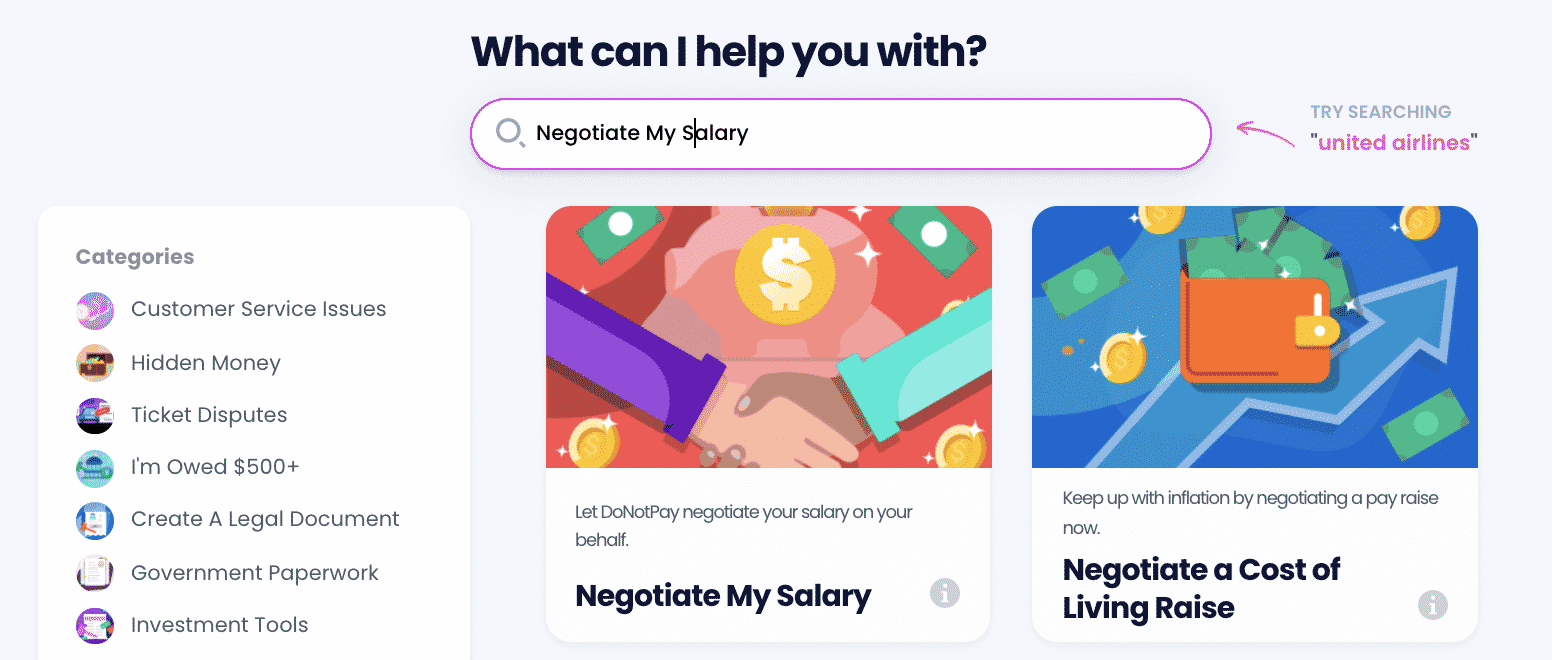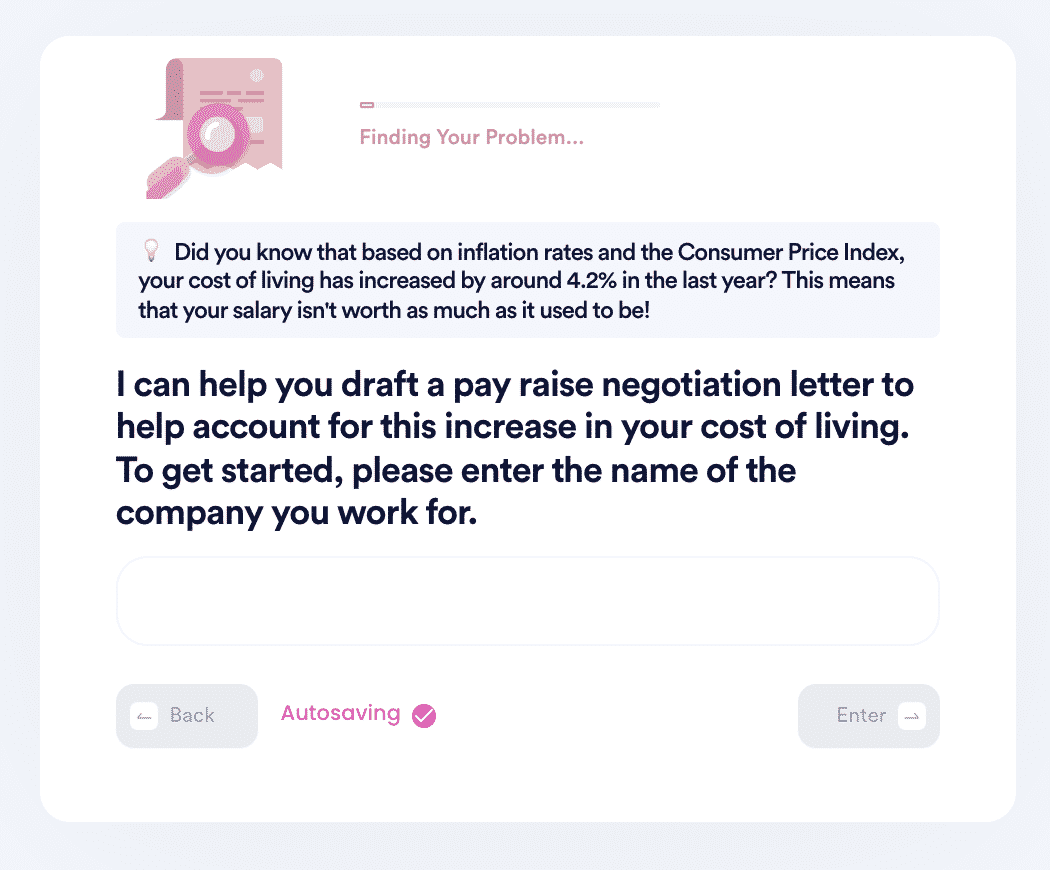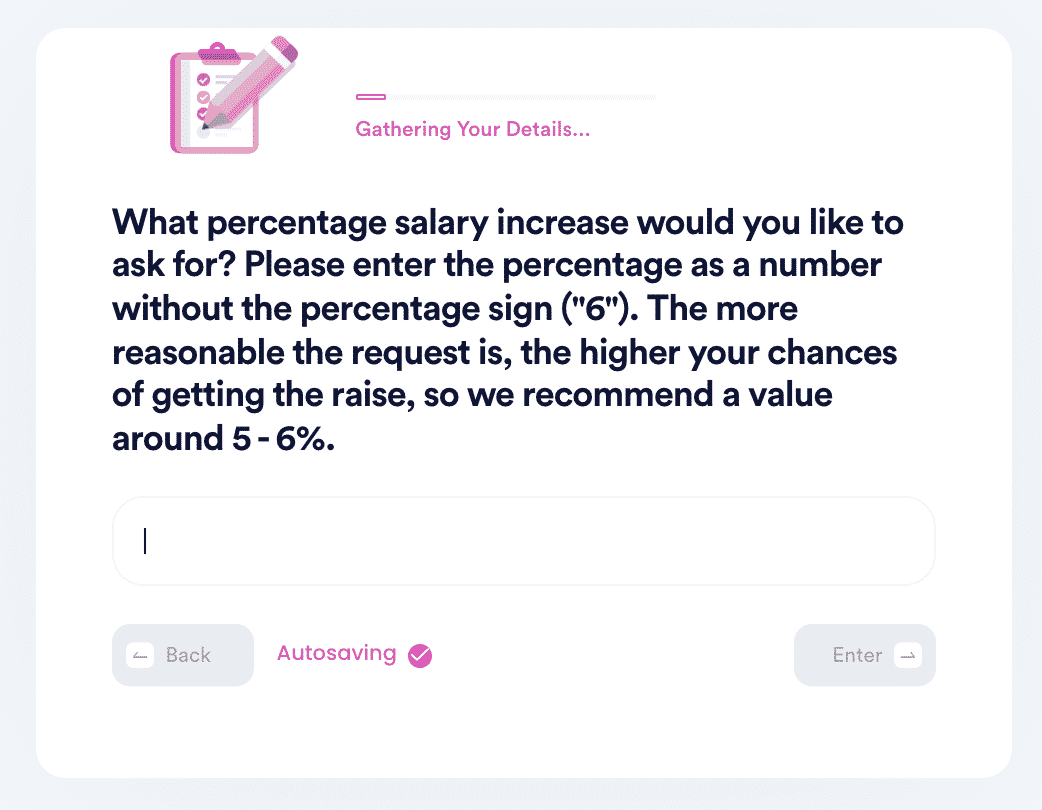How to Respond to a Rejected Salary Negotiation
Gathering the courage to approach your employer with a salary negotiation request is onerous. It gets worse when things don't go as planned and you get a rejection. It's not guaranteed that your employer will accept your proposition. How you respond to the rejection will determine whether you'll continue on the job or lose the opportunity forever.
There are two ways to respond to a rejected salary negotiation. First, you can choose to accept the company's offer as it is and continue working or refuse the offer and lose the opportunity or your current work position. Better still, you can consider rejection a tiny bump in your career and prepare for a renegotiation. Sometimes, how you initiate and handle yourself during the negotiation may play a part in the response you get from your employer. DoNotPay has a product that can help you create an excellent letter to initiate the negotiation and boost your confidence.
Reasons Why You May Get a Rejection in Your Salary Negotiation
Managers are aware of the detrimental effects of rejecting a or increment request to their employees. However, there are different reasons why a manager may reject a salary negotiation request. They include:
| Employee's performance | If your performance has not been at par with the company's standards, the employer may turn down the request for salary negotiation. |
| Available budget | A company that is operating on a tight budget may not have enough funds to pay more to its employees. |
| Market salary ranges | Your request may face rejection if you propose a salary above the market standards. |
| Reason for the negotiation | Pay raises are based on what value you bring to the company and not personal reasons; therefore, negotiating your salary on the grounds of personal reasons may yield a rejection. |
How to Respond to a Rejected Salary Negotiation
Rejections are difficult, but here is how you can approach one when negotiating your salary.
1. Understand the reason for declining Your request
Your employer may tell you their reasons for declining your request in the right way. However, if they don't tell you right away, it's in your place to ask so that you know where you did wrong and what else needs to be done. For example, if the rejection was due to your poor performance at work, you can ask where you need to improve so that you can qualify for a pay raise next time. Other reasons, like a strained company budget, can be compensated for by other benefits, especially if the employee deserves the pay raise.
2. Request for a Future Review
Once you understand the reason for the rejection, you know what needs to be done, and you are ready to do it. This is the time to pin down your employer into accepting a renegotiation in the future. For example, you can say, "I understand your reason for this response, but can we revisit it in three months?" With such a commitment, your employer will know that you want to continue the conversation and that the door is open for that. It will be easier to initiate a renegotiation once the three-month period elapses.
3. Up Your Game in Preparation for the Renegotiation
Your goal should be to get everything right this time around. Do your homework on the current industry trends on salaries, put together your paperwork showing your positive performance in the company. This would be a great place to make a list of your achievements, completed projects, and how your contribution has led to the growth of the company. With such information with you, your negotiation has a higher chance to get accepted.
How Can DoNotPay Help Initiate Salary Negotiations?
Writing a great negotiation initiation letter can improve your chances of getting approval on your request. DoNotPay's Negotiate Salary product can help you!
Here's how DoNotPay works.
- Search .

- Enter the name of your company and the industry you work in, so we can find the right wage statistics for your role.

- Answer a series of questions regarding your qualifications and achievements, relocation expenses, and other job offers if applicable.

- Enter the new base salary you would like to request.

And that's it! Once the information is finalized, DoNotPay will generate an official salary negotiation letter that you can then email or present to your employer!
What Else Can DoNotPay Do?
DoNotPay can help you learn the following.
- How to ask for a raise through email
- When to ask for a raise
- How much of a raise should I ask for?
- Should I negotiate salary
- How to negotiate salary over the phone
- How to negotiate salary through email
- How often should you get a raise
DoNotPay can also help you with:
- Learn small claims court
- Learn customer service
- Help You Deal with Identity Theft
- Providing Copywrite Protection
- Cancel Unwanted Subscriptions
Check out DoNotPay's Negotiate Salary Product to get started.


